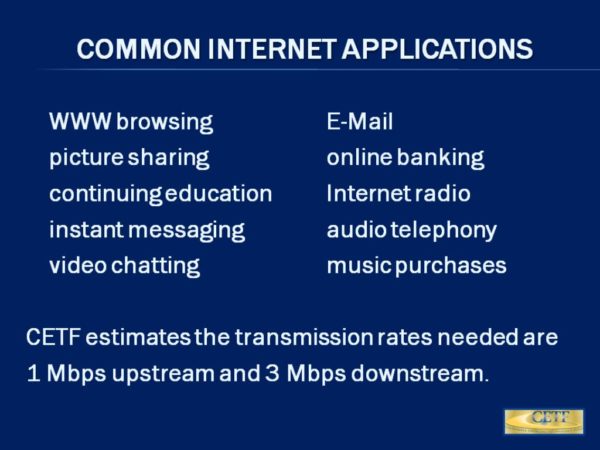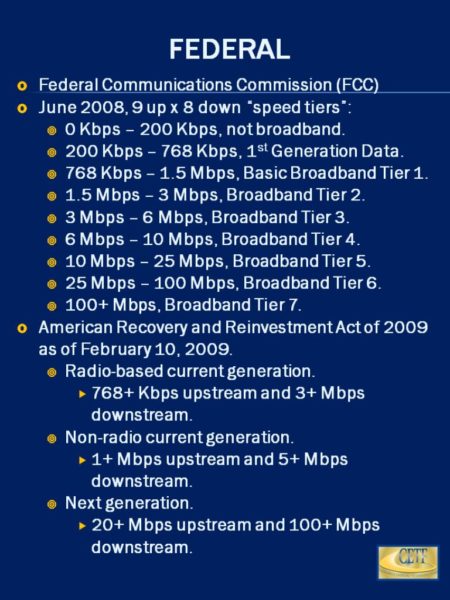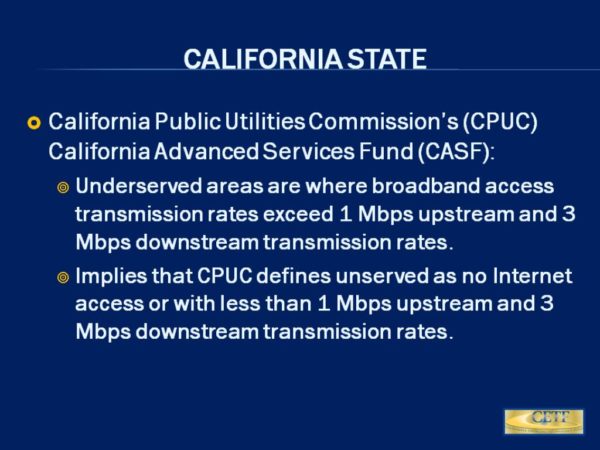High-speed access to the Internet is referred to generically as “broadband” and is defined by governmental agencies and other authoritative organizations in terms of speed of data transfer, such as Kilobits (Kbps) or Megabits (Mbps) per second (1 Mbps is 1,000 times faster than 1 Kbps). The term “broadband” encompasses a wide range of technologies that are both wireline and wireless (both fixed and mobile)-thus, it is a “technology neutral” term. Broadband is a term used first and foremost to describe higher speeds of access to the Internet in contrast to the speed of a “dial up” connection to the Internet through telephone service. Any medium or technology that provides broadband Internet access to residential or business users falls within the CETF use of the term broadband.
The purpose of this informaton is to provide policymakers, civic leaders, and stakeholders with an overview of the range of definitions of broadband used by various organizations and the spectrum technologies that qualify as broadband. It also provides existing and potential Internet subscribers with fundamental information on broadband technology and bandwidth needs for common applications in order to facilitate decision-making about service for their homes and businesses. Today worldwide many definitions exist for broadband, from the Organisation for Economic Co-Operation and Development (OECD) to the Federal Communications Commission (FCC) to the individual states.



